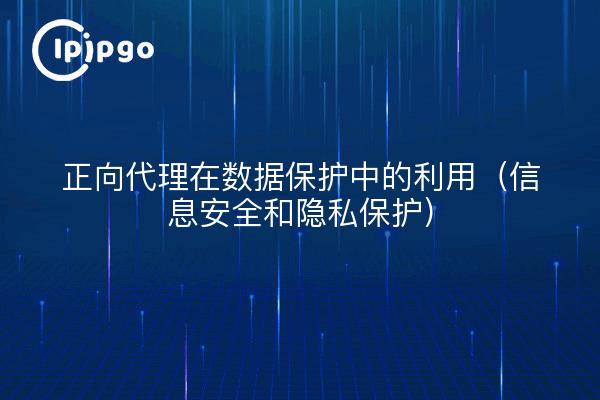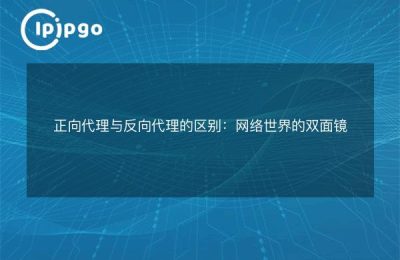
As an important tool for information security and privacy protection, forward proxy plays a key role in data protection. Positive proxy can effectively protect users' information security and privacy by hiding the real IP address of the client and encrypting data transmission. In this paper, we will deeply discuss the application of forward proxy in data protection and show its importance and necessity.
Provide anonymity to protect personal privacy
Positive proxy can hide the real IP address of the client. When a user accesses the Internet through a positive proxy, the target server can only see the IP address of the proxy server and cannot obtain the real IP address of the user, thus protecting the user's online privacy and personal identity information. This anonymity can effectively prevent hackers, malware or monitors from tracking and stealing users' private information. At the same time, Positive Proxy is also able to filter malicious websites and harmful content, providing a safer environment for users to surf the Internet.
Encrypted data transmission protects information security
In addition to hiding the IP address, the forward proxy can also encrypt the data transmission, ensuring the security of the data during transmission through encryption protocols such as SSL/TLS. This encryption mechanism can effectively prevent hackers or eavesdroppers from listening to and tampering with data packets, ensuring that users' sensitive information such as account numbers, passwords, bank card numbers, etc. are not leaked. Especially in insecure network environments such as public Wi-Fi, encrypted data transmission with the help of a forward proxy can effectively protect the user's information security and prevent data from being attacked and stolen.
Access control for system security
In an enterprise's internal network, Positive Proxy can also be used for access control to restrict employees' access to specific websites and services, thus preventing leakage of confidential company information and network security risks. By establishing strict access policies, forward proxies can help companies monitor and manage employees' online behavior, reduce the possibility of unproductive activities and network attacks, and improve overall system security.
Cached data improves access speed
Positive proxies can also cache frequently accessed data and web content to improve the speed and efficiency of data access. By caching static resources such as images, videos and web files, the number of accesses to the source server can be reduced, reducing network congestion and response time, and enhancing the user experience. To a certain extent, the caching function of the forward proxy also facilitates data protection by reducing the frequency of data transfer and the risk of data leakage.
As seen from the above analysis, forward proxies play an important role in data protection and strongly guarantee information security and privacy protection by providing anonymity, encrypted data, access control and cached data. In our daily life and work, we should fully understand and reasonably utilize forward proxies, so as to better maintain personal privacy, protect sensitive information, and improve network security.








